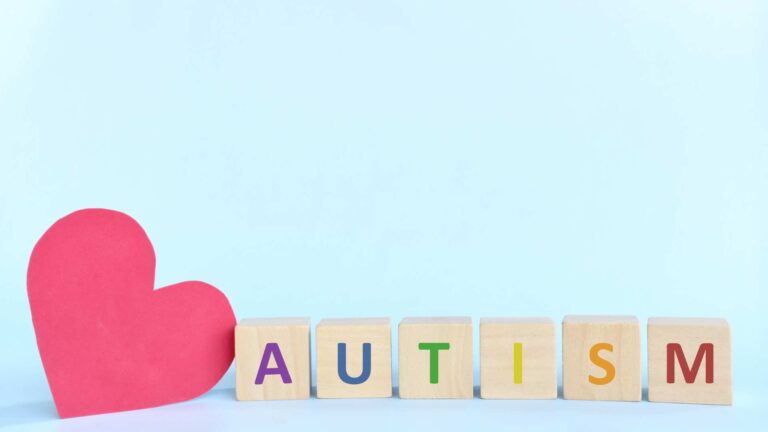Tabla de contenidos
¿Cómo puedo establecer rutinas saludables para mi ser querido con autismo?
Las rutinas a menudo forman la columna vertebral de un día bien estructurado y armonioso para muchos niños, pero especialmente para aquellos con trastorno del espectro autista (TEA).
Para estas personas, las rutinas no solo ofrecen apoyo en términos de gestión del tiempo, seguimiento y finalización de tareas. Las rutinas también pueden ser herramientas cruciales para mejorar el comportamiento, la comunicación y el aprendizaje en muchas personas con esta condición.
Los informes muestran que las rutinas pueden mejorar significativamente la calidad de vida de las personas que viven con TEA, lo que hace que los cuidadores consideren: ¿Cómo puedo establecer rutinas saludables para mi ser querido con autismo?
La respuesta comienza con la comprensión de los desafíos únicos que enfrentan las personas con autismo. Desde esa perspectiva, los cuidadores y los profesionales pueden diseñar e implementar rutinas que puedan ayudarlos a abordar estos obstáculos y satisfacer las necesidades de su hijo.
Esta guía de Texas ABA Centers mostrará por qué las rutinas son importantes y cómo las técnicas del análisis del comportamiento aplicado pueden ayudar a las familias neurodiversas a establecerlas y mantenerlas. También veremos por qué es útil usar rutinas de manera constante.
Por lo tanto, ¡sigue leyendo para obtener más información sobre la importancia de las rutinas para las personas con autismo!
Para obtener más información sobre Texas ABA Centers y nuestro enfoque de la atención ABA, visítanos aquí. Para leer otros blogs sobre ABA, autismo, el proceso de diagnóstico del autismo y mucho más, haz clic aquí.
Comprendiendo los Desafíos del Trastorno del Espectro Autista
Según el National Autistic Society, el autismo es un trastorno del espectro caracterizado por dificultades en la comunicación, la interacción social y comportamientos repetitivos.
Estos desafíos a menudo se manifiestan de manera diferente en todas las personas con autismo. Esta diversidad es lo que hace que el espectro autista sea un trastorno tan complejo.
Una de las características principales del TEA es la dificultad con el cambio y las transiciones, que pueden, en algunos casos, conducir a la expresión de comportamientos desadaptativos.
Por ejemplo, un cambio espontáneo en los planes o en el horario puede causar angustia y crisis en algunas personas con TEA. Esta dificultad con la flexibilidad también puede hacer que las tareas cotidianas, como vestirse o ir a la escuela, sean un desafío.
Otra lucha para muchas personas con autismo son las sensibilidades sensoriales. Esta sensibilidad se produce cuando las personas experimentan una mayor o menor tolerancia a ciertos tipos de estímulos. Por ejemplo, escuchar ruidos fuertes, ver luces brillantes o tocar ciertas texturas.
Estas luchas y más pueden dificultar que las personas con autismo participen en las actividades cotidianas. También pueden contribuir a sus problemas de comportamiento.
¿Por Qué las Rutinas son Importantes para el Autismo?
Una rutina es un patrón o secuencia de acciones que se repite regularmente.
Para muchos niños, las rutinas ofrecen comodidad, previsibilidad y estructura. Sin embargo, para las personas con autismo que a menudo luchan con el cambio y la imprevisibilidad, las rutinas también pueden proporcionar una capa adicional de seguridad y seguridad en su vida diaria.
Las personas con autismo a menudo experimentan el mundo de manera diferente, y esto puede hacer que completar las obligaciones ordinarias se sienta abrumador. Los cambios inesperados o la falta de estructura pueden provocar ansiedad y confusión.
Estas experiencias pueden ser difíciles de manejar para las personas, lo que resulta en respuestas conductuales a veces complejas e inútiles que pueden tener consecuencias a largo plazo. Las circunstancias pueden volverse aún más difíciles a medida que las personas con autismo envejecen.
Al seguir patrones familiares, muchas personas en el espectro autista se sienten más cómodas y seguras de sus habilidades.
Además, las rutinas ayudan a muchos a comprender que esperar durante cada parte del día, lo que facilita la transición de una tarea o actividad a otra.
Por ejemplo, tener una rutina matutina constante que incluya cepillarse los dientes, vestirse y desayunar en el mismo orden todos los días puede ayudar a un niño con TEA a comenzar el día con un mayor sentido de control y propósito.
Entendiendo ABA y su Papel para la Construcción de Rutinas
La terapia ABA es un enfoque terapéutico ampliamente respaldado para las personas con un diagnóstico de TEA que enfatiza en la ciencia del aprendizaje y el comportamiento.
En esencia, ABA se centra en comprender cómo funciona el comportamiento, cómo influye el entorno en él y cómo el aprendizaje de nuevas habilidades facilita la mejora de la vida diaria.
Cuando se trata de rutinas, las técnicas de ABA son realistas, alcanzables y están diseñadas para satisfacer las necesidades únicas de cada individuo. Los profesionales de ABA a menudo trabajan en colaboración con los padres para introducir y mantener rutinas de una manera que promueva un comportamiento consistente y habilidades de adaptación.
Por ejemplo, un terapeuta de ABA incorpora el refuerzo positivo para animar a un niño a seguir las rutinas. Este refuerzo o recompensa puede ser una pequeña ficha, un elogio o un regalo especial al que el niño tiene acceso después de completar una rutina.
Entregar esta recompensa refuerza el comportamiento que se produce de nuevo al demostrar que suceden cosas buenas cuando se sigue una rutina saludable.
6 Consejos Prácticos de ABA para Establecer Rutinas
Ya sea que seas un padre en casa o un maestro en el aula, estas estrategias de ABA pueden ayudarte a establecer y reforzar rutinas de manera efectiva y más allá de las sesiones de ABA.
1. Empieza Poco a Poco
Comienza introduciendo una pequeña rutina a la vez. Por ejemplo, concéntrate únicamente en una rutina matutina antes de intentar crear rutinas para otras partes del día.
2. Utiliza Soportes Visuales
Utiliza horarios visuales, como gráficos con imágenes o listas escritas, que pueden ser fundamentales para ayudar a los niños a seguir las rutinas.
Por ejemplo, una imagen de rutina matutina podría mostrar imágenes de una persona peinándose, desayunando y poniéndose los zapatos en secuencia para mejorar su finalización.
3. Implementa el Refuerzo Positivo
Elogia o recompensa al niño cada vez que complete una rutina con éxito. El refuerzo motiva a los niños a repetir los comportamientos deseados y a seguir las rutinas. ¡Recuerda siempre que las pequeñas victorias también importan!
4. Haz que las Rutinas Sean Divertidas
Siempre que sea posible, usa actividades que se alineen con los intereses del niño. Si al niño le encanta la música, agrega una canción divertida mientras limpias los juguetes o lo arreglas para crear asociaciones positivas.
5. Sé Coherente
La constancia es la clave. Trata de mantener las mismas rutinas en los momentos exactos del día para ayudar a los niños a interiorizar patrones y sentirse más seguros.
6. Prepárate para las Transiciones
Las rutinas a menudo requieren la transición de una actividad a otra, lo que puede ser una lucha. Para establecer expectativas claras de lo que viene a continuación, usa señales verbales claras.
Por ejemplo, puedes decir: "Cinco minutos más de juego antes de la hora de limpieza" para prepararlos para la transición de la nueva actividad.
¡Las intervenciones Basadas en la Rutina Ayudan a que la Vida en el Espectro sea Menos Abrumadora!
La terapia ABA ofrece un enfoque integral y basado en evidencia para crear y mantener rutinas para los niños con autismo. Este apoyo ayuda a que toda la unidad familiar funcione con mayor facilidad, mejorando las experiencias de la vida diaria para todos.
Al incorporar refuerzos positivos, apoyos visuales y estrategias ABA consistentes, los padres y cuidadores de jóvenes con TEA pueden ayudar a sus hijos a prosperar en muchas etapas de la vida.
Si bien pueden surgir desafíos, la integración de intervenciones basadas en la rutina y la atención ABA avanzada continúa ofreciendo esperanza de un futuro mejor para quienes viven con autismo.
Así que, ¡sigue aprendiendo y nunca pierdas la esperanza!
¡Sigamos creciendo y apoyándonos unos a otros para crear un mundo más inclusivo y basado en la rutina para aquellos que viven con autismo y lo necesitan!
Apoyo al Autismo, Entrenamiento para Padres con ABA y Más con Texas ABA Centers
En Texas ABA Centers, estamos continuamente explorando enfoques innovadores para la terapia ABA, combinando técnicas basadas en datos con atención personalizada para ofrecer a nuestros clientes los mejores servicios de autismo disponibles
Nuestros profesionales expertos en ABA ofrecen a los niños y adolescentes en el espectro terapia ABA, apoyo de diagnóstico, entrenamiento para padres y más.
Si estás buscando orientación experta en la creación y el mantenimiento de rutinas para tu hijo o deseas explorar nuestros programas personalizados de ABA, no dudes en ponerte en contacto con nosotros en Texas ABA Centers.
Contáctanos a través de este enlace en línea o llámanos al (877) 771-5725.
Estamos comprometidos en apoyar a las familias neurodiversas en cada paso del camino en todas las regiones de Texas, incluyendo Austin, Dallas y Houston.
Empodera a tu hijo. Simplifica tu vida. Comienza tu viaje con Texas ABA Centers ahora.








